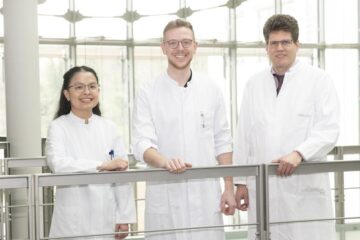’Survival’ genes hold key to healthy brains in babies and the elderly

Completing a daily crossword and enjoying a range of activities and interests has long been accepted as a recipe for maintaining a healthy brain in older age, but the reasons for this have never been clear. Now, scientists at the University of Edinburgh are seeking to identify brain’s ’survival’ genes which lie dormant in unused brain cells, but are re-awakened in active brain cells. These awakened genes make the brain cells live longer and resist traumas such as disease, stroke and the effects of drugs, and are also critical to brain development in unborn babies.
Their findings could lead to the development of smarter drugs or gene therapies to halt the progress of neurological diseases like Alzheimer’s and Parkinson’s disease and may also explain, scientifically, the benefits to the brain of maintaining an intellectually and physically stimulating lifestyle in later years.
Dr Giles Hardingham of the Centre for Neuroscience Research at the University of Edinburgh said: “When brain cells are highly stimulated, many unused genes are suddenly reactivated. We have found that a group of these genes can make the active brain cells far healthier than lazy, inactive cells, and more likely to live a long life. These findings also have implications at the other end of life, where maternal drug taking and drinking can cause these survival genes to be turned off in the brain of unborn babies.”
Dr Hardingham, who presented this work recently at the prestigious annual meeting for the Society for Neuroscience in Washington DC, explained: “We recently discovered that a critical step in turning on these survival genes involves activating a master genetic controller called CREB. We aim to home in on which of these CREB-controlled genes are crucial in helping the brain cells live longer and become resistant to trauma. By being able to explain at molecular level the basis of brain activity-dependent survival, it will open the way to developing better therapies to help halt the progress of neurological diseases.
He added: “Our work also bears relevance to the potential harm that can befall an unborn baby if it is exposed to substances which suppress its brain activity, like alcohol, and certain drugs like Ketamine and PCP (Angel Dust). The brain cells of young, developing brains are particularly reliant on signals from these ’survival’ genes, but these signals are suppressed if their mothers are taking drugs or drinking alcohol.
“This in turn can lead to serious health problems such as foetal alcohol spectrum disorder, which affects up to one per cent of live births in the UK and can cause mental retardation, behavioural problems and diminished growth. Some of this harm may be reduced or minimized if we know exactly how it is taking place.”
Media Contact
More Information:
http://www.ed.ac.ukAll latest news from the category: Life Sciences and Chemistry
Articles and reports from the Life Sciences and chemistry area deal with applied and basic research into modern biology, chemistry and human medicine.
Valuable information can be found on a range of life sciences fields including bacteriology, biochemistry, bionics, bioinformatics, biophysics, biotechnology, genetics, geobotany, human biology, marine biology, microbiology, molecular biology, cellular biology, zoology, bioinorganic chemistry, microchemistry and environmental chemistry.
Newest articles

Airborne single-photon lidar system achieves high-resolution 3D imaging
Compact, low-power system opens doors for photon-efficient drone and satellite-based environmental monitoring and mapping. Researchers have developed a compact and lightweight single-photon airborne lidar system that can acquire high-resolution 3D…

Simplified diagnosis of rare eye diseases
Uveitis experts provide an overview of an underestimated imaging technique. Uveitis is a rare inflammatory eye disease. Posterior and panuveitis in particular are associated with a poor prognosis and a…

Targeted use of enfortumab vedotin for the treatment of advanced urothelial carcinoma
New study identifies NECTIN4 amplification as a promising biomarker – Under the leadership of PD Dr. Niklas Klümper, Assistant Physician at the Department of Urology at the University Hospital Bonn…





















